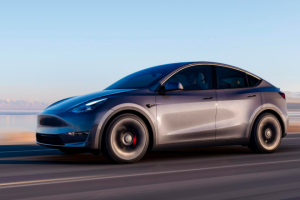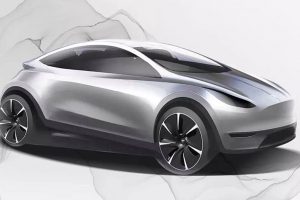- 🚗 Former Tesla exec confirmed WSJ’s report on Biden administration’s anti-Tesla bias.
- 🏛️ Biden administration rejected Tesla’s attempts to forge ties multiple times.
- ⚡ Tesla was a major player in the US EV sector in early 2021, producing about two-thirds of EVs on US roads.
- 📉 Tesla’s non-unionized workforce influenced the Biden administration’s decision to keep its distance.
- 🛠️ UAW union reportedly pressured White House to distance itself from Tesla.
- 😡 Tesla leadership was outraged when Biden credited GM CEO for EV leadership.
- 🗣️ Former Tesla VP Rohan Patel confirmed accuracy of WSJ’s report.
- 🎙️ Elon Musk was initially optimistic about Biden’s focus on climate, turned critical later.
- ❌ Biden administration deemed Musk’s carbon tax proposal as politically difficult.
- 🤝 By late 2021, Musk called Biden administration “not the friendliest” and joked about Biden ignoring SpaceX’s Inspiration4 mission.
The tension between Tesla and the Biden administration has been a subject of intrigue and speculation. Recent confirmations by a former Tesla executive, combined with insights from a detailed Wall Street Journal (WSJ) report, shed light on the strained relationship between the leading electric vehicle (EV) manufacturer and the current administration. This blog post aims to explore the nuances of this relationship, delving into the root causes and implications for the future of Tesla and the EV market in the United States.
The Foundation of the Rift
Early Optimism Turned Sour
When Joe Biden took office in January 2021, Elon Musk, CEO of Tesla, expressed enthusiasm about the new administration’s focus on climate change. Musk was hopeful that Biden’s presidency would bolster sustainable energy initiatives, potentially benefiting Tesla. However, the optimism was short-lived. By the end of 2021, the relationship had soured, leading Musk to publicly criticize the administration.
Multiple Rejections
Tesla’s attempts to establish a rapport with the Biden administration were consistently rebuffed. Despite being a dominant player in the American EV sector, producing approximately two-thirds of the electric vehicles on US roads at the time, Tesla’s overtures were met with a cold shoulder.
The Role of Unions
Influence of the United Auto Workers (UAW)
One of the critical factors in this strained relationship was Tesla’s non-unionized workforce. The United Auto Workers (UAW) union reportedly had significant sway over the administration’s stance on Tesla. According to the WSJ report, Biden officials were wary of antagonizing the powerful UAW, which leaned on the White House to maintain its distance from Tesla and Musk.
The UAW’s Perspective
The UAW made it clear to the administration where their priorities lay. A former UAW official noted that there was no need for explicit ultimatums; the Biden administration understood the union’s position implicitly. This dynamic played a crucial role in the administration’s cool response to Tesla’s initiatives.
Public Outrage and Private Assertions
Tesla’s Reaction
Tesla’s leadership did not take the administration’s rebuffs lightly. A notable flashpoint came when President Biden credited GM CEO Mary Barra for “electrifying the entire automobile industry,” despite Tesla’s substantial contributions. At a time when Tesla delivered over 115,000 electric cars in the US during Q4 2021, General Motors produced a mere 26 EVs. This acknowledgment infuriated Tesla’s executives and led to public expressions of outrage.
Confirmation by Rohan Patel
In a rare instance of concord, former Tesla Vice President of Global Public Policy and Business Development, Rohan Patel, confirmed the accuracy of the WSJ report. He highlighted that the report was factual and provided necessary context, a sentiment echoed on social media.
Diverging Views on Climate Policies
Musk’s Initial Support
Initially, Elon Musk was highly supportive of Biden’s climate policies. He envisioned a collaborative future where Tesla could play a crucial role in the administration’s mission to combat climate change.
The Carbon Tax Proposal
One of Musk’s significant proposals was the introduction of a carbon tax. However, this idea was dismissed by the Biden administration as politically challenging. Musk argued that a carbon tax was essential to hold carbon generators accountable, even offering that SpaceX, another of his ventures, would be willing to pay such a tax. Despite its merits, the proposal did not gain traction within the administration.
Musk’s Changing Stance
A Shift in Tone
By September 2021, Musk’s stance had shifted dramatically. During the 2021 Code Conference, he labeled the Biden administration as “not the friendliest” and suggested a union bias. He also took to social media, posting jokes about Biden “sleeping,” particularly after Biden ignored SpaceX’s Inspiration4 mission, a groundbreaking, all-civilian spaceflight aimed at raising funds for St. Jude Children’s Research Hospital.
Implications for the Future
Tesla’s Market Position
The tension between Tesla and the Biden administration raises questions about the future trajectory of Tesla in the US market. The company remains a powerhouse in the EV sector, but the lack of support from the administration could pose challenges in navigating future regulatory landscapes.
Broader Industry Impact
The situation also highlights the broader interplay between politics, unions, and industry. The UAW’s influence on the administration’s stance towards Tesla underscores the significant power unions wield in shaping policy decisions. This dynamic could affect not only Tesla but also other non-unionized companies in the industry.
Conclusion
The relationship between Tesla and the Biden administration is emblematic of the complex interplay between industry giants, government policy, and powerful unions. As Tesla continues to push the boundaries of innovation in the EV sector, understanding these dynamics will be crucial for stakeholders, policymakers, and industry watchers alike.
While the Biden administration’s relationship with Tesla may remain complicated, the drive for sustainable energy and advancements in EV technology will undoubtedly continue to shape the future of transportation.





